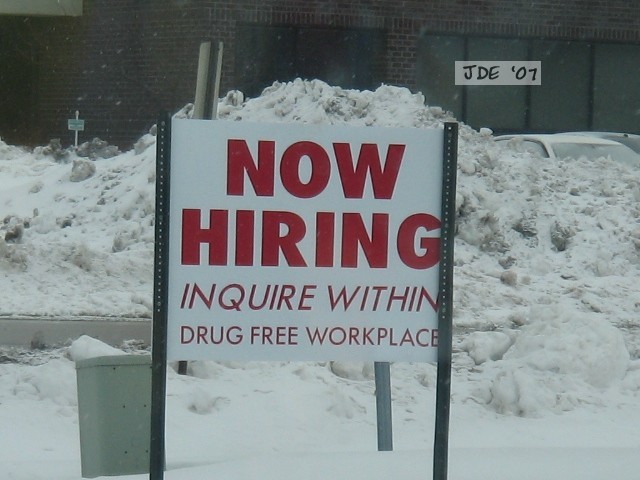In February, the Los Angeles County Board of Supervisors passed an ordinance aimed at promoting fair employment practices and ensuring that criminal history is not an obstacle to securing employment. The ordinance added several compliance requirements to the California Fair Chance Act for employers considering the criminal history of applicants and employees in making employment decisions.
The Fair Chance Ordinance (FCO) applies to employers with five or more employees in unincorporated areas of Los Angeles County and is set to take effect on March 28, 2024, and become operative on September 3, 2024.
Let’s dive into a summary of the key requirements of the Fair Chance Ordinance and understand its implications for employers and job applicants.
Background Checks
The FCO places specific requirements on employers regarding the timing and conduct of background checks. The key points to note include the following:
- Conditional offer requirement: Covered employers are prohibited from inquiring about criminal history before extending a conditional offer of employment unless legally required.
- Written notice: If conducting a background check after a conditional offer, the employer must provide written notice outlining the reasons for the review and the types of information, background, or history that will be reviewed in addition to the applicants’ or employees’ criminal history.
Employers are not allowed to ask applicants or employees to provide information regarding their criminal history before the employer’s receipt of the criminal background check report.
Job Postings
Under the FCO, employers must be transparent in their job postings. The following are critical requirements related to job postings:
- Inclusive language: Employers must include language in all job postings stating that qualified applicants with arrest or conviction records will be considered for employment.
- Legal restrictions: Job postings must specify any local, state, or federal laws that impose restrictions or prohibit hiring individuals with a specified criminal history.
- Intention to review criminal history: Employers must specify their intention, if any, to conduct a review of an employee’s criminal history in connection with a conditional offer and include a list of all material job duties of the specific job position that may be affected by the criminal history.
Employers are prohibited from including statements in job postings that exclude individuals with a criminal history from consideration for employment.
Preliminary Notice And Adverse Action
The FCO mandates a structured process if an employer intends to take adverse action based on an individual’s criminal history after the initial individualized assessment. The process includes:
- Preliminary notice: If the employer intends to withdraw or rescind a conditional offer of employment or take any other adverse employment action, a preliminary notice must be provided to the applicant or employee, along with an explanation of their right to respond to the notice before the decision becomes final.
- Consideration of response: The employer must consider all information and documents submitted by the applicant or employee before making a final decision or taking an adverse action.
- A copy of the initial individualized assessment
- Notice of the disqualifying convictions
- A copy of the criminal background check report
The employer must provide applicants or an employee five business days to respond to the preliminary notice of adverse action before making a final decision. In addition, the applicant or employee must be given at least 10 additional business days to either:
- Respond to the preliminary notice if they dispute the accuracy of the background check and need time to obtain evidence for rehabilitation or mitigating circumstances
- Present evidence of rehabilitation or mitigating circumstances orally at a meeting between the applicant or employee and the employer
Following the applicant’s response and any submission of additional information or evidence, the employer must consider all the information and documents, whether written or oral, before making a final decision or taking an adverse action. Then, the employer must complete a second individualized assessment. If, after this second assessment, the employer makes the final decision to withdraw the conditional offer or take adverse employment action, the employer must notify the applicant or employee by regular mail and electronic mail. This notice should include the following:
- Notice of the final decision to withdraw the conditional offer
- A copy of the second individualized assessment
- Notice of the disqualifying conviction
- Information regarding existing procedures for the applicant to challenge the decision or request reconsideration
- Notice of the applicant’s or employee’s right to file a complaint with the Los Angeles County Department of Consumer & Business Affairs
It’s also important to note that the employer must provide the final notice of adverse action within 30 calendar days after the applicant or employee responds timely to the preliminary notice. Failure to do so may be presumed as an untimely delay and in violation of the section. To rebut this presumption, the employer must provide a written explanation justifying the delay.
In addition, employers must maintain and preserve all records relating to the FCO for a minimum of four years after receiving an application.
Next Steps
The FCO’s new requirements in Los Angeles County may make it worthwhile for business owners to consult an outside party such as a professional employer organization (PEO). A PEO like GMS can offer valuable expertise and resources to help business owners understand and adhere to the FCO, ensuring that their hiring practices align with the ordinance’s stipulations. With the support of GMS’ HR experts, business owners can confidently implement fair and inclusive hiring processes, mitigate compliance risks, and focus on fostering a diverse and talented workforce, contributing to a thriving business environment. Contact us today to learn more!



